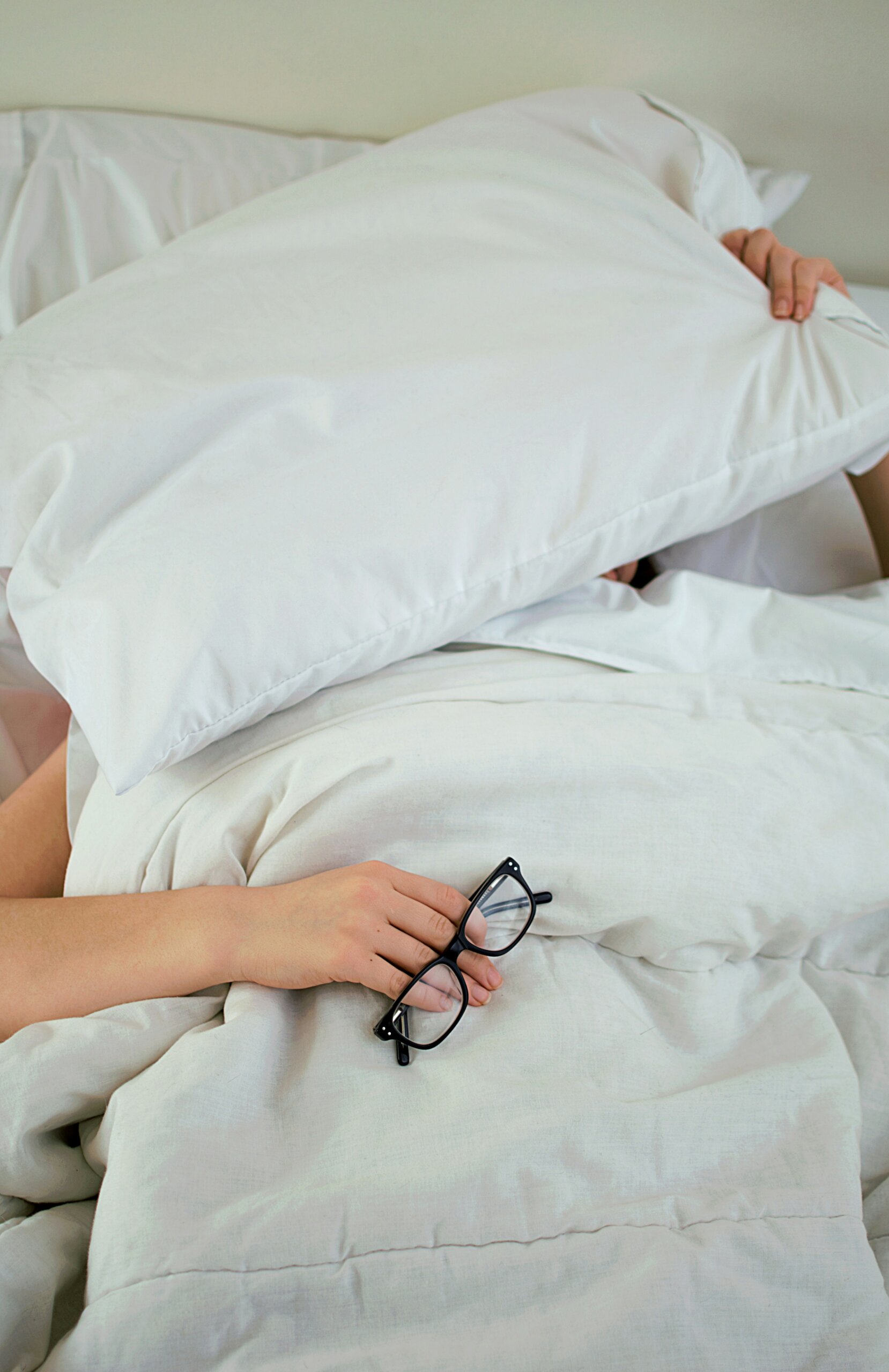Most people have a nightly routine. They perform a series of activities to wind down and get ready for bed every night.
Everyone’s nightly routine looks different, but it may consist of things like showering or taking a bath, washing your face, and brushing your teeth. Maybe you like relaxing with a cup of tea or curling up to read a few pages of a book.
No matter what you decide to do before counting sheep, you have a pattern you follow before you to go to bed. But what if, even after you get ready to sleep, you struggle with anxious thoughts and feelings at night? Even though you’re prepped and ready for bed, your anxiety is keeping you up.
Here are 5 tips to put anxiety to bed at night (so you can sleep, too).
1. Create and Stick to a Schedule
Creating and sticking to a schedule and routine can help you practice good sleep hygiene. When you aim to go to sleep at the same time each night and wake up around the same time each morning, your body and brain will naturally fall into a good rhythm and routine. When this happens, you’ll actually start getting tired when it’s time for bed and feel more awake and alert when waking up in the morning.
2. Move Your Body
You can help your sleep and ease your anxiety at night by moving your body during the day. Exercise is known for being beneficial to one’s physical health and a positive action for one’s overall mental health and wellness. Moving your body can release endorphins or “feel good” chemicals in the body which can help you reduce stress and anxiety and boost your mood. When you move your body during the day, you’ll also be more likely to fall asleep easier at night.
3. Spend Time Winding Down
Before going to bed, it’s important to not partake in any stressful activity. You have to give yourself and your brain time to wind down after your day. At least thirty minutes to an hour before bed, try to spend time engaging in peaceful and relaxing activities. This could include things like taking a bath, listening to music, or reading a book.
4. Write in a Journal
Journaling is a great way to get all of those thoughts and feelings circling in your brain and body out and onto the pages of a notebook instead of holding them inside with nowhere to go. The best part about writing in a journal is that it can help you when you’re feeling anxious, but it’s also a great tool to look back on later. If you write in a journal before bed, you can reflect on what you wrote and dive deeper into what you were thinking and feeling. Then you can come up with an action plan on how to better manage those thoughts and feelings.
5. Reduce Screen Time
Screens are everyone in today’s world. You may spend the majority of your day at a desk in front of a laptop, monitor, or multiple screens. Phones have become like another body part. You may even be reading this on a phone or have your phone nearby. While screens are easy to grab, they don’t make going to bed easy. It’s important to limit screen time before bed because these screens emit blue light. That can trick the brain into thinking the sun is up, which can negatively impact your sleep.
Next Steps
Anxiety is a common emotion. It’s also extremely common to struggle with signs or symptoms of anxiety at night when there are fewer distractions. If you’re struggling with anxiety, you’re not alone. You can read more about Anxiety treatment here. While there are tips and tricks for you to help reduce your anxiety, there isn’t a true replacement for seeking additional support. We can help you put your anxiety to bed. Reach out to set up an appointment.

